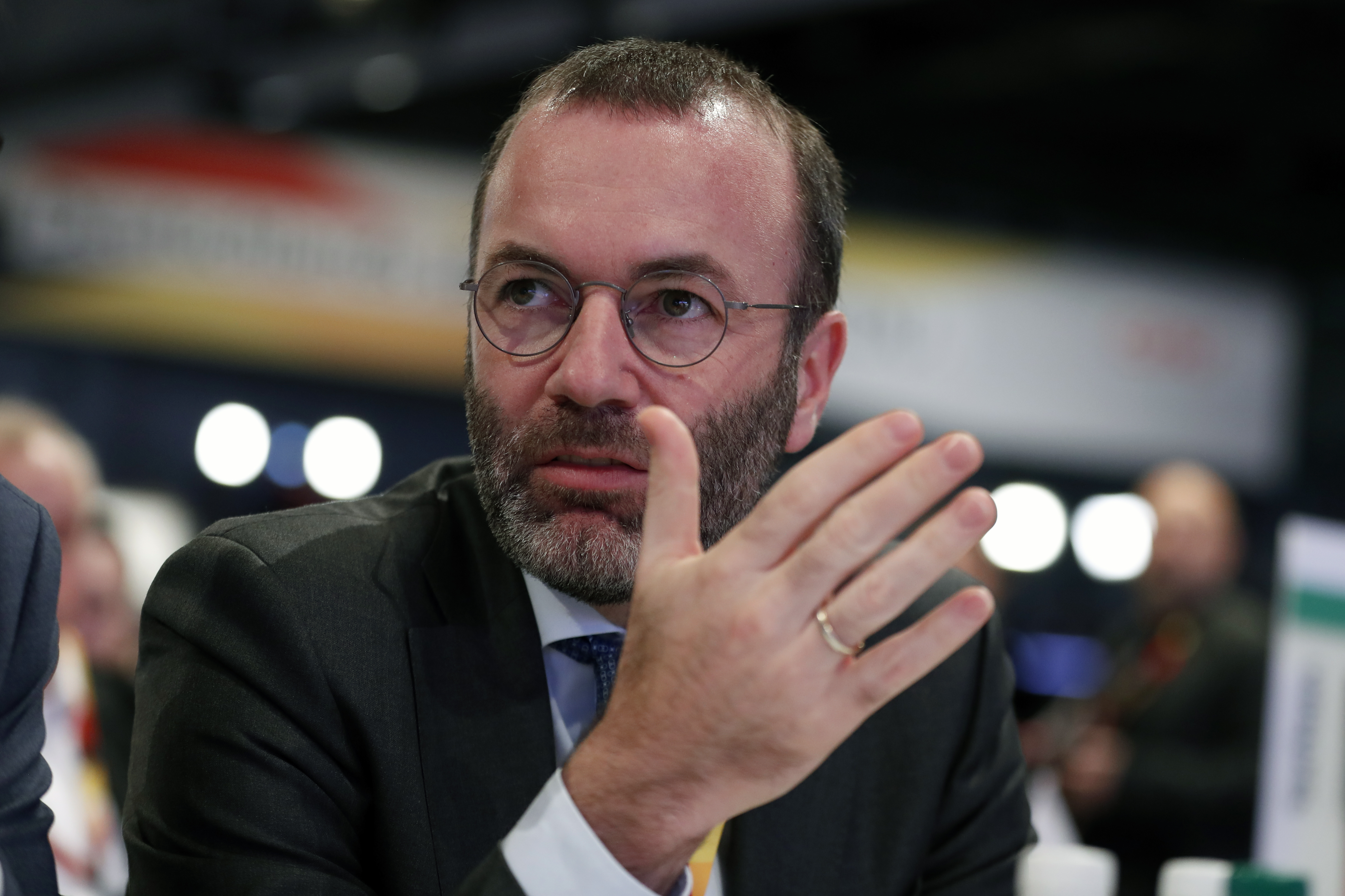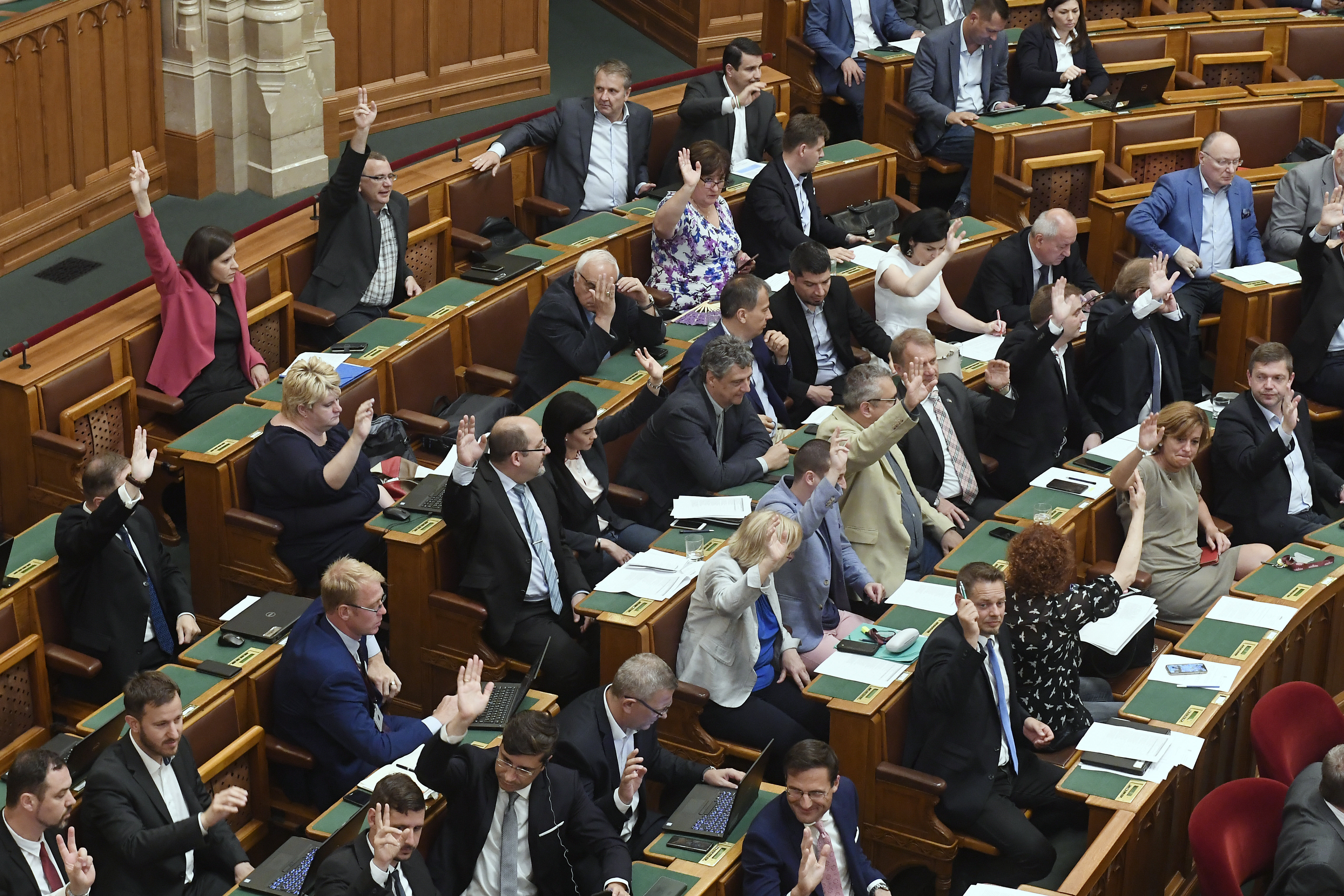Orbán and Morawiecki vow to maintain veto after Budapest talks on stalled EU budget

- Stay updated on the latest news from Hungary by signing up for the free InsightHungary newsletter:
Prime Minister Viktor Orbán and Polish Prime Minister Mateusz Morawiecki met in Budapest Thursday to discuss the European Union's €1.8 trillion seven-year budget and coronavirus recovery package, which hit a roadblock after the two countries vetoed its adoption in Brussels last week.
The leaders affirmed that they will continue to oppose any provisions of the budget plan which would link the disbursal of EU funds to rule of law criteria. The Hungarian government has argued such conditions are arbitrary and would require amendments to EU treaties, and made spurious accusations that they are an attempt to force Hungary to accept immigrants.
According to a joint statement by Orbán and Morawiecki, they propose a "two-track process" to limit the scope of budgetary conditionality while holding negotiations in the European Council on whether a such a link should be established.
"We have decided to align our positions on these issues. Neither Poland, nor Hungary will accept any proposal that is deemed unacceptable by the other," their joint statement reads.
In an interview with German weekly Die Zeit published Wednesday, Orbán accused the European Parliament of retroactively adding the rule of law conditions following a July budget agreement he said didn't include them. (Rule of law linkage was included in the EP's July budget agreement - ed.)
Orbán said decisions on the rule of law should be postponed until after the budget and recovery package were settled.
But some European leaders insist that the rule of law mechanism is non-negotiable. On Wednesday, European Commission president Ursula von der Leyen said Hungary and Poland should end their veto of the budget and take their complaints to the European Court of Justice. The rule of law provisions only apply to cases that threaten the EU budget, she said, adding, "It is very difficult to imagine anybody in Europe who would possibly have anything against that principle."
Orbán's decision to veto the economic package was also met with resistance in the European People's Party, the European conservative political family of which Fidesz is a suspended member.
Manfred Weber, the leader of the EPP, called Poland and Hungary's veto "irresponsible," and denied claims that the rule of law mechanism would be used as a tool of political pressure.
On the weekend, Weber told a Belgian newspaper that were it not for the coronavirus pandemic, the EPP would have already voted Fidesz out of the party family. EPP members are increasingly impatient over Orbán's veto of the budget, which has cost him a loss of support within the group, Weber said. (Fidesz was suspended from the EPP in March 2019 over violations of the party family's democratic values.)
Hungary and Poland are the two largest net beneficiaries of EU cohesion funds, and the only two EU member states to have Article 7 proceedings launched against them for breaches of democratic standards.
Amendment to election law could further burden opposition parties
The parliamentary justice committee voted 8-4 on Tuesday to approve an amendment to election law that would further narrow the path to victory for Hungary's opposition parties in 2022 elections.
If passed by the Fidesz supermajority in Parliament, the proposal, submitted by independent MP János Volner (formerly of Jobbik and the Mi Hazánk Movement), would increase the number of constituencies where parties must field candidates in order for them to form a national party list.
Currently, parties must field candidates in at least 27 of Hungary's 106 constituencies to form a party list. But the proposed changes would increase that number to 71 constituencies, and bump the minimum number of counties where candidates must be fielded from nine to 14.
The proposed changes come after a similar bill was submitted at one minute before midnight on November 10 by Justice Minister Judit Varga, which proposed raising the minimum number of constituencies to 50.
Government officials have argued that the changes are necessary to clamp down on fake parties taking advantage of state subsidies for electoral campaigns, but it is unclear why two amendments were proposed.
If passed, the measures would force the six largest opposition parties to form a single national list. The opposition has already committed to coordinating candidates in each of the 106 constituencies to ensure that only one opposition candidate runs against the Fidesz candidate. But the multiparty negotiations have been accompanied by internal disagreements over whether to present a single common list.
Prime Minister Viktor Orbán's chief of staff Gergely Gulyás said at a press conference on November 12 that the changes had "nothing in the world to do" with the opposition's strategy to unite against Fidesz in 2022 national elections.
Human rights commissioner urges Hungarian parliament to delay vote on draft bills
The Council of Europe's human rights commissioner has urged Hungary's Parliament to postpone a vote on several draft bills - including constitutional amendments - submitted last week by governing party officials, arguing they "could have serious adverse effects on human rights in the country."
Dunja Mijatović said on Friday that a vote on the measures should be delayed until after the coronavirus state of emergency is lifted, and following broad consultations on the legislation with the Hungarian public.
“I fear that several proposals contained in the complex legislative package, submitted without prior consultation and relating to matters including the functioning of the judiciary, election law, national human rights structures, scrutiny over public funds, and the human rights of lesbian, gay, bisexual, transgender, and intersex (LGBTI) people, could serve to undermine democracy, the rule of law and human rights in Hungary,” Mijatović said.
(Read about the contents of the draft bills in our article from last week by clicking here.)
The commissioner said she was "alarmed by the apparent escalation of the stigmatisation of LGBTI people and the manipulation of their dignity and rights for political gain." She criticized the proposal to disallow single people or same-sex couples from adopting children, and the mechanism for exceptional authorization which would be held by Minister for Family Affairs Katalin Novák.
Mijatović also raised concerns over a proposal to merge Hungary's Equal Treatment Authority into the office of the Ombudsman. While member states have some discretion to organise their national human rights structures as they see fit, it is crucial that in doing so they respect fundamental principles agreed on at the international level, especially the need to guarantee and respect the independence and effectiveness of such bodies, she said.
Hospitalizations, deaths increase as lockdown enters third week
The number of hospitalizations and coronavirus patients on ventilators continues to increase, each breaking records on Wednesday when 7,718 people were being treated in hospitals and 656 were on ventilators. Those figures dropped slightly on Thursday.
A major jump in new cases was registered on Thursday with 6,360, the second highest number of daily new cases since the beginning of the pandemic. The difference between new cases registered on Wednesday and Thursday was the highest two-day jump yet, and came even as the number of tests decreased between Wednesday and Thursday, continuing a downward testing trend. (Later on Thursday, the government's official coronavirus webpage quietly added nearly 14,000 tests to the daily data. This brought the number of daily tests to 31,879, a record - ed.)
Updated statistics from the Central Statistical Office showed a sharp increase in total deaths in Hungary during the last week of October. Between October 26-November 1, 3,027 people died in Hungary, an increase of 641 deaths (27%) over the five-year average of previous years.
On Saturday, 121 coronavirus-related deaths were confirmed by the emergency task force, the highest since the start of the pandemic.
A regulation went into effect Tuesday providing seniors aged 65 and over with a two hour daily window to do their shopping at grocery stores, pharmacies and drugstores.
Shopping will be restricted to elderly patrons from 9-11 a.m. on weekdays and 8-10 a.m. on weekends. In announcing the new measure in a Facebook video on Monday, Prime Minister Viktor Orbán said the elderly may shop at other hours of the day, but would have exclusive use of stores during the relevant period.
"It's clear from the pandemic statistics that the age group of our parents and grandparents continues to be the most at risk," Orbán said. "We must primarily protect them."
The new measures were the first to be taken since lockdown restrictions went into effect two weeks ago. While the average number of daily new cases has stagnated in recent days, the number of daily tests has also seen a decrease, potentially distorting the number of new cases.
George Clooney spars with Hungarian government, Soros suspected
Several rounds of verbal sparring between the Hungarian government and American actor George Clooney reached the news this week after Clooney made a brief criticism of Prime Minister Viktor Orbán.
In an interview with the American GQ magazine, Clooney described the filming of his post-apocalyptic film Midnight Sky and made mention of Orbán as a purveyor of hate and anger.
“We weren’t in the middle of a pandemic when it happened, but there were still all these other elements, these elements of how much hate and anger all of us are experiencing in this moment of history, all over the world," Clooney said. "Go to Bolsonaro in Brazil, or Orbán in Hungary. Look around. Lots of anger and hate.”
Clooney's comments sparked a considerable backlash: a news report by the public broadcaster alleged it was well-known that Clooney was "a close friend of the Soros family." As evidence, the broadcaster published a photograph of Clooney and George Soros' son Alex taken at the World Economic Forum.
Some pro-government commentators suspected that Clooney's criticism of Orbán was nothing more than the actor pushing Soros' pro-immigration agenda.
"There has been a dispute over immigration between Soros and the Hungarian government for years. Soros uses every opportunity to attack the Hungarian government, and it is rather disappointing that there are people, even non-political people, who execute Soros' political intentions,” spokesman for the Government Information Center Örs Farkas told the public broadcaster.
Even government ministers wouldn't let Clooney's words go unanswered. Minister of Foreign Affairs Péter Szijjártó said that while "we like George Clooney as an actor," his "historical and political knowledge is somewhat limited."
Justice Minister Judit Varga invited Clooney for a coffee, where she offered to "inform him about the real situation of Hungarian rule of law."
Clooney denied charges that he was close friends with Soros, and said he had only met the Hungarian-American billionaire once.
"The Orbán propaganda machine is lying, full stop," Clooney wrote. “I would be ashamed if I were not on record for speaking out against the kind of authoritarianism (typical of) the Orbán regime.”



